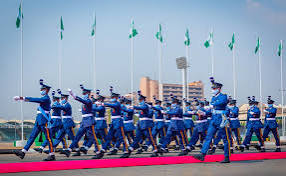Council for Northern Muslim Youth Preachers has urged Nigerians to show greater commitment to preserve the legacies of the Sokoto Sultanate.
The council chairman, Sheikh Musa Yusuf Asadussunnah said this on Wednesday in Kaduna at a two-day on the position of Northern Ulama to safeguard the image of the Sultan Sa’ad Abubakar III, and the sanctity of the caliphate.
Islamic clerics from the 19 northern state attended the workshop.
Asadussunnah said the image of the Sultan, as the revered steward of the caliphate must be respected and preserve.
He said the Sultan was representing the Muslims community in Nigeria, warning that any attempt to derogate his position would be considered as an attack on the Muslims.
The chairman urged the Sokoto state government to focus on challenges bedevilling the state, to improve education, health and the economy of the state.
“We call on the government to join hands with traditional and religious leaders to ensure peace and unity in Nigeria.
‘We urge the Muslim youth to disseminate this information to all and saundry that the Muslim youth do not agree with any attempt to derogate the powers of Sultan of Sokoto.
“We commend the federal government for its initiative to provide a constitutional role for our traditional leaders,” he said.
Also speaking, Abdulmutallib Ahmad, a Kano-based cleric, advised traditional rulers not to allow themselves to hoodwink by politicians, rather they should prioritise the welfare of their people.
He admonished political leaders to fear God, and respect the traditions and religion.
On his part, Aminu Aliyu , a preacher in Gusau, Zamfara, described the seat of the Sultanate as historic that symbolised the legacy of Usman Dandofio, the founder of the caliphate.
He said the position of the Sultan or the “Sarkin Muslimi” meaning the leader of the Muslims was not only restricted to Sokoto, rather transcend to all parts of Nigeria.
It will be recalled that the Sokoto government had transmitted a bill to the state House of Assembly seeking to amend the Sokoto Emirate Council Law.
If passed, the law would strip the Sultan of the power to appoint kingmakers and district heads without approval of the state governor.



























